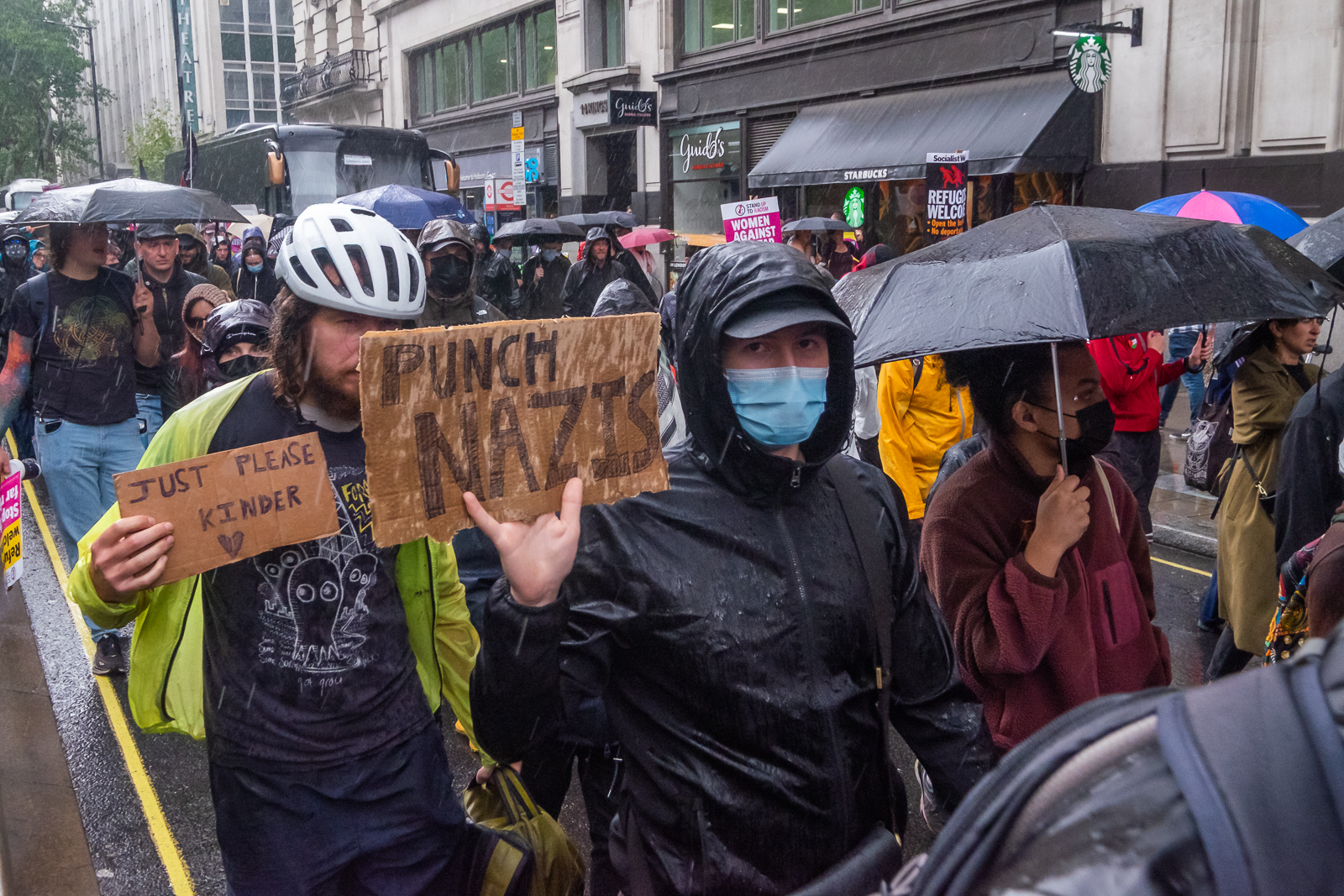The statement below by the Sicilian Anarchist Federation (original Italian version here) addresses the referendum on changes to the national constitution which took place on December 4th. Among other measures, the changes proposed by the liberal Renzi government aimed to break what has been widely characterised as a “gridlock” in the Italian Senate, including slimming the senate from 315 members to 100 and centralising many functions which had hitherto been distributed among numerous regions and departments. More broadly, the referendum was pitched by many media commentators as a test of strength for Renzi and the commitment of the Italian people to Europe. The No campaign won, leading to Renzi’s resignation.
For direct action, grassroots mobilisation, permanent conflict.
First we would like to clear up a common misconception. The referendum of December 4th over changing the Italian constitution does not relate to that document’s more “idealist” statements — all those articles that have made it, for some, “the best constitution in the world.”
These are high-minded passages which have, by and large, been disregarded by each successive coalition government, maintained only as window dressing and hardly ever defended by the courts. They mainly serve as an ideological cover for a bourgeois-democratic and clerical system to advance its anti-popular, pro-capitalist, authoritarian projects.
The referendum does propose some changes to parliamentary structure, such as the abolition of a directly-elected Senate and its replacement with an unelected “Senate of the regions and municipalities.” It suggests the abolition of the National Council of the Economy and Labour (CNEL), etc. {Ed’s note: CNEL serves in a consultative capacity to the government, parliament and the regions. It also has the right to legal initiative within its competencies}. But as far as changes to the electoral system are concerned, they have nothing to do with this consultation.
Attack on bourgeois freedom and representative democracy
We anarchists do not support parliament and, though we understand there are obvious ongoing attempts to centralise the command posts, we do not believe that defending the Chamber of Deputies/Senate or the number of deputies can represent a defence of the freedoms which are increasingly threatened in this country. Just as we did not consider it such when Italy switched from a proportional to majority system.
Military agreements within NATO, the arms trade, international economic policies, with austerity, the role of banks, assaults on the work of the populist conquests, the interference of the Catholic church, all this is a daily attack on (bourgeois) freedoms and populist conquests; but this is a dynamic which is independent from the policies of the coalition government and the functioning of the parliamentary mechanism, which, if anything, they were and are the instrument of.
We do not believe in representative democracy, that is, the consensus built through numbers that can be and are manipulated to give a minority the right to govern “in the name of the people.” A “sovereign” people which — strangely — exercises its sovereignty only through voting, then soon after ceases to exercise it, and only suffers the choices and harassments of government. We are not alone in this choice, we have good company — millions and millions of people who are fleeing the electoral ritual by removing, objectively, their consent to the party system.
A strange alliance in defence of compromise
The varied and contradictory front of the No (changes) campaign is emphasising the issue of an “attack on the constitution” by the proponents of the Yes campaign. But is it possible to miss the reality that the right is deployed en masse on the No side? Both moderate and neo-fascist is today an “ally” to the left of various shades, regarding this referendum as a sort of “last resort to save the fatherland” – a left that is just jealous of what the Renzi government is “boldly” carrying on and that it would have wanted and if it could have, would have already enacted?
The Constitution was born as a compromise between Catholic, liberal and Marxist forces, in order to safeguard the new bourgeois system that arose after 20 years of fascist dictatorship, but absolutely in continuity with it. This compromise was a significant loss for the left overall. It accepted some serious shit, such as the inclusion of the fascist accord with the Vatican, and it contented itself with a series of abstract principles that were dismissed soon after (not today, 70 years later!): from work for all, to the removal of all obstacles that prevent the full development of the human person, from article 11 (Italy formally rejects war, but the territory is full of NATO and foreign military structures whose sole purpose is making war, starting with US military communications hub MUOS) to the recognition of fundamental human rights — the list could go on for a long time. These are statements that, in fact, no government has ever dreamed of getting rid of, because its symbolism and instrumentality is known to all.
A conflict within the bourgeoisie
This referendum stems from a conflict between two bourgeois parliamentary factions, authoritarians and liberals competing for power; factions united by a willing participation in previous serious attacks on (bourgeois) freedom which have been in place for some time, starting with the efforts of capital to take back the wins of movements from 1968 onwards. Attacks that do not spare any aspects of social life, part of the vast international neoliberal project that globalises poverty and centralises wealth in a few hands.
Little changes if some of these factions prefer to wear the populist and nationalist mask, relying on racism: State, capital, corruption, militarism are common elements to the “rival” factions. The gravity of the situation not only stems from parliamentary authoritarian aspects, but by a thousand authoritarian acts that occur in everyday life — wars and militarisation, great infrastructural projects, corruption, economic and political arrogance, unemployment, migration, labour laws; racism, clericalism, homophobia, sexism, land insecurity, repression of dissenters etc.
This referendum-skirmish between bourgeois parties to settle their differences should be read in context of the attacks mentioned above. It diverts energy and attention from serious battles which cannot walk the parliamentary and institutional path and it turns out to be quicksand for such movements. To focus on continuous referendum campaigns to address important social problems is to devote oneself to sterility and failure, damaging grassroots struggles and meaningful participation of the people in their own emancipation.
The alternative: abstention for social change
Unfortunately often, especially in these contexts, we forget the fundamental principles of the struggle for human emancipation, falling into the trap of a “united front of national salvation” alongside political actors who themselves trample these principles easily and consistently. We want to do more than make a simple – but still viable – statement of principle: undertake a wider battle for the defence of freedoms that are under attack.
Our society is peppered by large mobilisations and smaller ones, in which the protagonists are social realities, grassroots movements, self-organised groups of workers, precarious workers, the unemployed, the homeless, who are part of sometimes long-running actions and conflicts. The vast majority of these anarchists are actively trying to keep alive the principles of direct action, of assemblyism, self-organisation. Change, real change, egalitarian, anti-capitalist, libertarian, conquering more and more spaces for freedom, derives from this path and not from institutional traps, invented and designed to harness such movements, their struggles, their desire for change.
Elections and referendums are distracting and divisive weapons. It is only in direct struggles that you can reconstruct a genuinely class struggle united front that is anti-capitalist, anti-liberal, revolutionary. Pensioners and immigrants, unemployed and employed, the precarious and exploited people of every sector and grade, will divide themselves between those who will vote and those who will not; but their condition will remain unchanged, because it does not arise from the manner in which parliamentary consensus is reached, that is, by one electoral law or another, by the CNEL or not, from the type of parliamentary system, or the number of deputies. It derives from social balance and from class oppression of capital and the State, from the use of passivity and delegation and many other factors.
We use the word “revolutionary,” a term that for many has fallen into disuse, but which for us gives a perspective to everything that moves today, and represents a distancing from rotting state-capitalism, from politicking, from authoritarianism in all its forms.
And it is in this vein that we offer our consistent abstention. Our refusal to be part of this system is the result of a choice, to place ourselves outside and against bourgeois institutions, but with the victims and those who fight for a society where they have abolished the exploitation of man by man.








